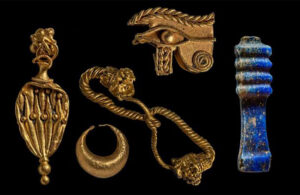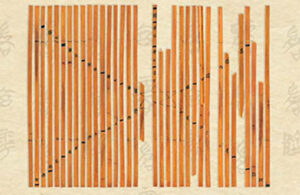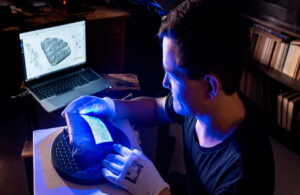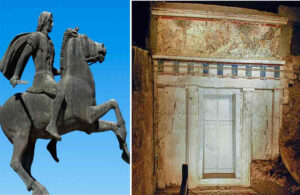In a significant archaeological discovery, researchers have unearthed an ancient Greek helmet at the Acropolis of Elea-Velia, situated in Magna Graecia, Italy. This discovery marks the third helmet of its kind to be found at this historic site, shedding light on ancient civilizations and their military practices.
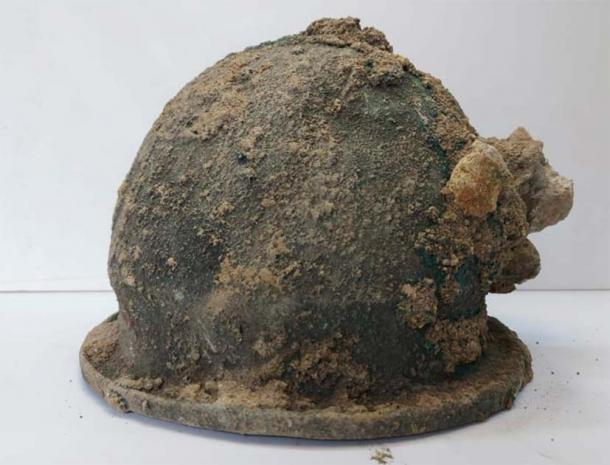
Massimo Osanna, the Director of the Museum of Velia and the archaeological park of Paestum and Velia, unveiled this remarkable find. He revealed that the structure discovered on the Acropolis of Velia served as a sacrificial site dedicated to the goddess Athena following the Battle of Alalia. This naval conflict, occurring between 541 and 535 BC, witnessed Greek triumph over the Etruscans and Carthaginians in the Tyrrhenian Sea near Corsica and Sardinia.
Delving into Ancient Rituals and Worship
The archaeological site not only yielded the ancient Greek helmet but also provided evidence of what appears to have been an early temple devoted to Athena, the revered Greek goddess associated with warfare and wisdom. Scholars speculate that the helmet might have been offered to Athena either in the aftermath of the battle or during periods of conflict and unrest.
Uncovering the Essence of Greek Warfare
Ancient Greek helmets are renowned for their distinctive design and craftsmanship. Among the most iconic is the Corinthian helmet, recognized for its full-faced structure and adorned plume. Crafted primarily from bronze, these helmets offered vital protection to warriors while serving as symbols of individual rank and city-state allegiance. Recent discoveries, including two sixth-century BC helmets found at Velia and a well-preserved helmet unearthed near the Aegean coast, provide invaluable insights into ancient Greek military equipment and tactics.
Tracing Architectural and Cultural Evolution
The excavation also unveiled remnants of a painted brick wall alongside polygonal blocks, reminiscent of ancient Greek architectural styles found at sites like Delphi. Ceramic vases inscribed with the word “sacred” further underscore the religious significance of the site. Detailed analysis suggests that the earliest structures date back to 540-530 BC, with evidence of Hellenistic-era remains from 480-450 BC, showcasing the site’s evolution over several centuries.
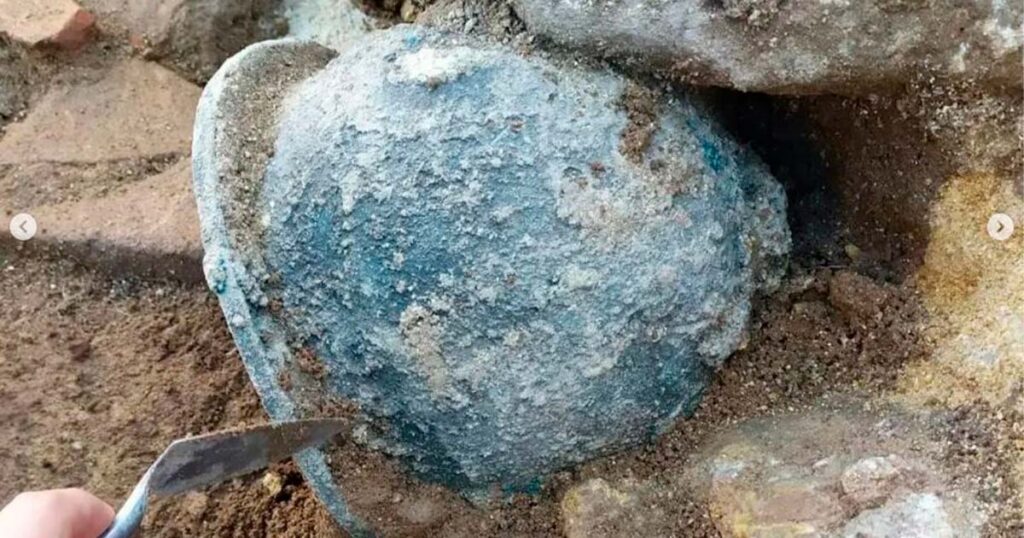
The Legacy of Elea-Velia: A Beacon of Philosophy and Knowledge
Historically known as Elea-Velia or Hyele, the city was founded by the Greeks around 538–535 BC. Nestled along the Tyrrhenian Sea in modern-day Salerno, Italy, Elea-Velia was renowned as a center of philosophical inquiry and intellectual discourse. Notable figures like Parmenides and Zeno of Elea, pivotal figures in the Eleatic school of philosophy, hailed from this coastal city.
Nurturing Philosophical Enlightenment: A Cultural Epicenter
Strategically positioned just 40 kilometers southeast of Paestum, Velia flourished as a hub of philosophical thought and cultural exchange. The city, established by revered philosophers Parmenides and Zeno, fostered intellectual pursuits that shaped ancient Greek philosophy and scholarship.
Reimagining Mediterranean History: Insights from Archaeological Endeavors
The discoveries at Acropolis Velia, including the Greek helmet and inscribed ceramics, underscore the importance of continued investment in archaeological research. Through meticulous excavation and analysis, these endeavors offer invaluable glimpses into the vibrant tapestry of Mediterranean history, enriching our understanding of ancient civilizations and their enduring legacies.



